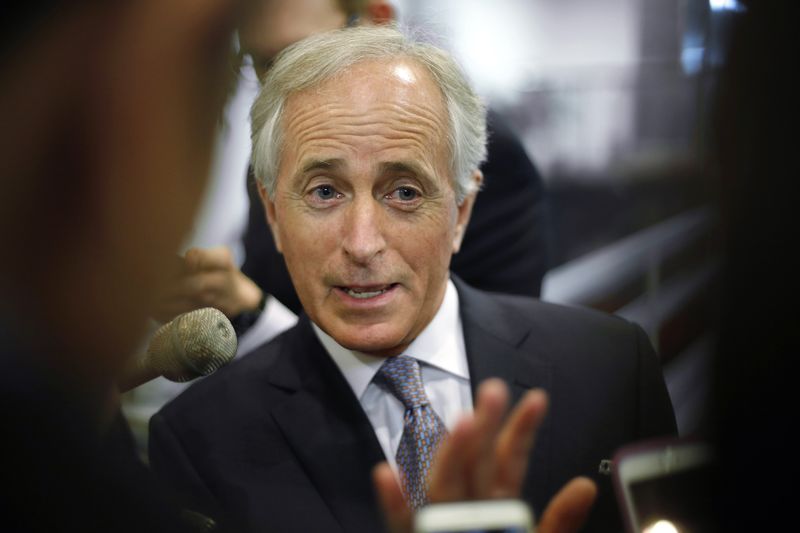By Patricia Zengerle
WASHINGTON (Reuters) - The U.S. Senate Foreign Relations Committee will likely vote next Thursday on a closely watched bill requiring President Barack Obama to submit any nuclear agreement with Iran for Congress' approval, the panel's chairman, Republican Senator Bob Corker, said on Thursday.
If the committee approves the bill, as expected, it would advance legislation the Obama administration has said could endanger delicate nuclear talks with Iran, just as negotiators rush to meet a late-March deadline for a framework agreement.
Obama has threatened a veto. And he and other top administration officials have been urging Congressional Democrats not to support the measure in the committee or in the full Senate.
"We're hoping to start marking it up next Thursday morning," Corker, the bill's author, told reporters outside the Senate, referring to the committee debating and considering amendments before voting on whether to recommend it to the full Senate.
After the bill is passed by the Foreign Relations panel, it would be sent for a vote in the full Senate. That would not take place before mid-April at the earliest, after lawmakers leave Washington for a two-week recess.
Lawmakers and congressional staff say there is a good chance that enough Democrats will join Republicans to give the bill the 60 votes it would need to advance in the Senate.
If it passes the Senate, the legislation would likely move quickly in the House of Representatives, where Republicans hold 245 seats, compared to just 188 Democrats.
If Obama carries through on his veto threat, the bill's backers insist they could marshal the two-thirds of the House and Senate necessary to override the veto. Democratic leaders say it is far too early to tell.
Lawmakers had agreed to hold off on the Corker bill until after March 24, to give international negotiators time to reach a framework agreement on a nuclear deal with Iran. But many are eager to go ahead as the end of March approaches.

A senior European negotiator said on Thursday that the six world powers were unlikely to reach a framework agreement with Iran in the coming days as the sides are still far apart on key issues.